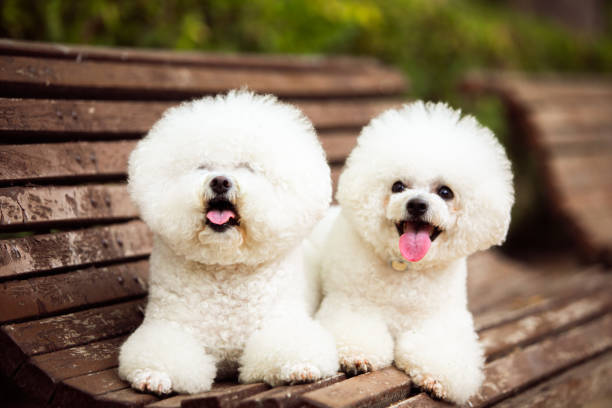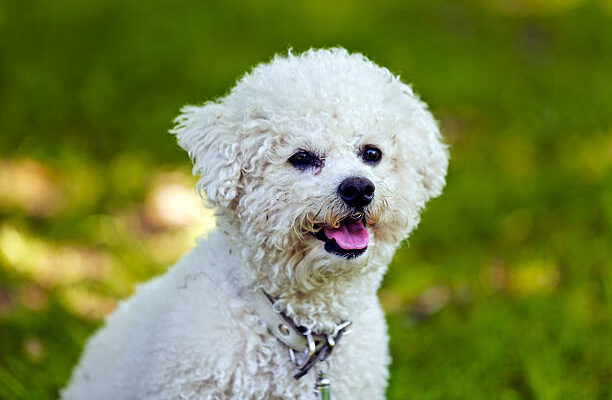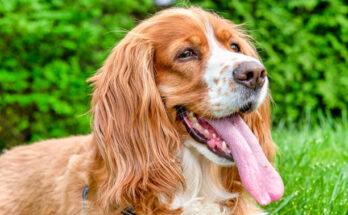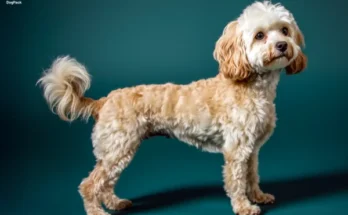The Bichon Frise stands among small dogs as a joyful breed because of its fluffy white coat and its distinctive personality trait of loving behaviors. The Bichon Frise breed carries all necessary qualities that make it perfect for families and all types of households including singles and seniors. The Bichon Frise started life as a companion breed which developed into the well-loved pet dog that people enjoy today as a lap holder and playful companion. The comprehensive handbook covers every essential aspect related to Bichon Frise lifestyle along with care needs and personality characteristics.
Table of Contents
- Introduction to Bichon Frises
- History and Origin
- Physical Characteristics
- Personality and Temperament
- Training a Bichon Frise
- Exercise and Activity Needs
- Nutritional Requirements and Diet
- Grooming and Hygiene
- Common Health Issues and Preventive Care
- Socialization and Behavior
- Living Conditions and Adaptability
- Fun Activities and Games
- Conclusion
Introduction to Bichon Frises
Small size and fluffy appearance make the Bichon Frise a dog that naturally emits happiness and charm. The Bichon Frise shows its charm through its luxurious white coat while keeping its big round black eyes as its defining characteristic. As a family pet the Bichon Frise offers intelligence and high energy together with low shedding and gentle affectionate nature and refined charm. People who live in either apartments or large homes will experience energetic and affectionate qualities from this dog.
History and Origin
Mediterranean Roots
The initial records of Bichon Frise breed development link to the Mediterranean region. The Barbet water spaniel-type dog led to the creation of multiple related breeds which divided into four varieties including Bichon Bolognese and Havanese then Maltese before concluding in the Tenerife variety now known as Bichon Frise.
Royal Companions
The Bichon Frise gained widespread popularity among European aristocracy particularly throughout France as well as Spain and Italy during the time of the Renaissance era. Their joyful disposition combined with their refined looks made them desirable aristocratic companions.
Rise to Popularity
Due to disfavor after the French Revolution the Bichon Frise maintained its existence as an entertainment pet performing in circuses and on the streets. Recognition of this dog breed took place in the twentieth century while its popularity grew to become a popular pet.
Fun Fact:
In French the unique Bichon Frise coat pattern is officially termed “Frise” which mirrors a defining aspect of this dog breed.
Physical Characteristics

Size and Build
- Height: 9.5 to 11.5 inches (at the shoulder)
- Weight: 12 to 18 pounds
- Build: Compact, sturdy, and well-proportioned
Coat and Colors
With its two-layered shield of white curly fur the Bichon Frise presents a coat that feels extremely soft and velvety. The outside coat appears rough but curly and the underneath layer consists of soft dense fur.
Coat Colors:
- White (standard and most recognized)
- Cream or apricot (light shading permissible on ears or body)
Personality and Temperament
People know the Bichon Frise character defines itself through its exuberant and loving personality traits. This breed has a deep love for human interaction because they feel most comfortable and lively during social times. These dogs suitable for family life because they combine playful behavior with gentle emotional traits.
Are Bichon Frises Good Family Dogs?
Yes! Family bonds deeply with Bichons since these dogs show both affection towards humans and kindness toward children while getting along with different animal friends. These dogs possess a flexibility that suits families with responsible children because they demonstrate loving attitudes.
Are Bichon Frises Good Guard Dogs?
The dogs serve as modest watchdogs through their responsive behavior which triggers barking when they notice intruders. Their watchdog abilities are remarkable yet their friendly behavior makes protection duties impossible for them.
Training a Bichon Frise
Intelligence and Trainability
Because Bichons demonstrate both intelligence and strong desire to please they become easily trained. Positive reinforcement through treats and praise gives Bichons their best response.
Basic Training Tips:
Start socialization training as soon as your puppy becomes capable of obedience commands
Training should remain brief and accompany entertaining methods.
You should utilize clicker training and rewards to achieve successful results.
Persistence equals success because housetraining your Bichon Frise needs considerable time.
Socialization
It is crucial for Bichons Frostie to experience social situations at an early age because it minimizes barking while stopping fearful actions from developing. Introduce your Bichon to different people together with animals and environmental elements when it is still young.
Exercise and Activity Needs
The Bichon Frise grows to a small size but remains very active and joyful therefore needing frequent exercise for architectural and mental well-being.
Daily Exercise Needs:
- 30–45 minutes of exercise per day
- Two walks per day combined with indoor playtime
- Games and interactive toys
Mental Stimulation:
- Puzzle toys and food-dispensing balls
- Obedience games and trick training
- Rotating toys to prevent boredom
Nutritional Requirements and Diet
The Bichon Frise requires nutritious meals because it shapes their vitality together with the health of their coat and lifespan.
Recommended Diet:
- Lean proteins: Chicken, turkey, salmon, lamb
- Healthy fats: Fish oil or flaxseed for a shiny coat
- Complex carbs: Brown rice, peas, and sweet potatoes
- Vitamins & minerals: From fresh vegetables and high-quality kibble
Feeding Schedule:
- Puppies: 3 meals per day
- Adults: 2 meals per day
- Provide clean, fresh water at all times
- Avoid overfeeding to prevent weight gain
Grooming and Hygiene
A Bichon Frise owner needs periodic coat grooming as both a requirement for health and for maintaining its attractive appearance.
Grooming Routine:
- Brushing: Daily brushing to avoid matting
- Bathing: Every 3–4 weeks
- Haircuts: Every 4–6 weeks (professional grooming often needed)
- Ear Cleaning: Weekly, especially for moisture build-up
- Nail Trimming: Every 2–3 weeks
- Dental Care: Brush teeth 2–3 times weekly
The “Powder Puff” Look:
The signature groomed look of the Bichon includes a rounded face, fluffy body, and clean lines. Regular professional grooming helps keep this appearance intact.
Common Health Issues and Preventive Care
The Bichon Frise dog experiences good overall health but exhibits some genetic and lifestyle conditions that may develop.
Common Health Issues:
- Allergies (food and environmental)
- Patellar Luxation
- Dental Disease
- Ear Infections
- Cataracts and other eye issues
- Bladder Stones
Preventive Care:
- Regular veterinary check-ups
- Monitor weight and diet
- Maintain dental hygiene
- Provide ear cleaning and grooming
- Early screenings for inherited conditions
Socialization and Behavior
The Bichon Frise puppy attains happiness by interacting with people since it needs frequent physical contact and loves being part of social environments.
Tips for Socializing Your Bichon Frise:
You should expose your puppy to numerous people and animals at an early age.
Your Bichon Frise should attend group classes designed for puppies as well as dog-friendly social events.
Allow your Bichon to encounter multiple sounds while it meets diverse environments.
Common Behavioral Traits:
- Affectionate: Loves cuddling and bonding
- Playful: Always ready for a game
- Cheerful: Expresses joy through wagging and tail-wiggling
- Sensitive: Doesn’t respond well to harsh treatment
Living Conditions and Adaptability
The adaptable nature of Bichon Frises makes them suitable for any residential setting such as houses of different sizes and apartments and townhomes alike.
Best Living Conditions:
- Apartments: Perfect for small-space living
- Homes with Yards: Enjoy outdoor play if safely fenced
- Indoor Preference: Bichons prefer being near their family and dislike solitude
Climate Considerations:
- Cold Weather: May need a doggy sweater for winter walks
- Hot Weather: Keep indoors during peak heat and ensure hydration
Fun Activities and Games
The Bichon dog loves gameplay activities that provide mental stimulation combined with interactive adult time which serves as their main sources of happiness and excitement.
Recommended Games:
- Fetch using soft indoor-safe toys
- Tug-of-War with small ropes
- Hide and Seek with treats or toys
- Obstacle Courses in the backyard or living room
Mental Engagement:
- Training new tricks
- Interactive feeders and puzzle games
- Dog sports like rally obedience or agility (at a beginner level)
Conclusion
Many dog enthusiasts consider the Bichon Frise to be among the most loving breeds which exhibit friendliness alongside amazing adaptability. Since Bichons exhibit friendship for humans and their non-shedding coat while maintaining a positive disposition it is no shock they maintain growing popularity. Rarely do common household environments fail to suit Bichons because the combination of constant training and grooming alongside emotional bonding helps these dogs to flourish.
Key Takeaways:
Every member of the family can find happiness through the Bichon Frise because it bonds easily as a joyful and affectionate companion.
These dogs have demanding grooming requirements which owners can handle through regular maintenance sessions
Proper early socialization together with training foundation are mandatory to develop a properly behaved dog
They flourish in both apartments and homes with moderate daily exercise
Proper love and care enables Bichons to experience long and content lives with a wagging tail
Bichon Frise extends beyond their attractive countenance since they offer everlasting friendship through their spirited and faithful nature.




